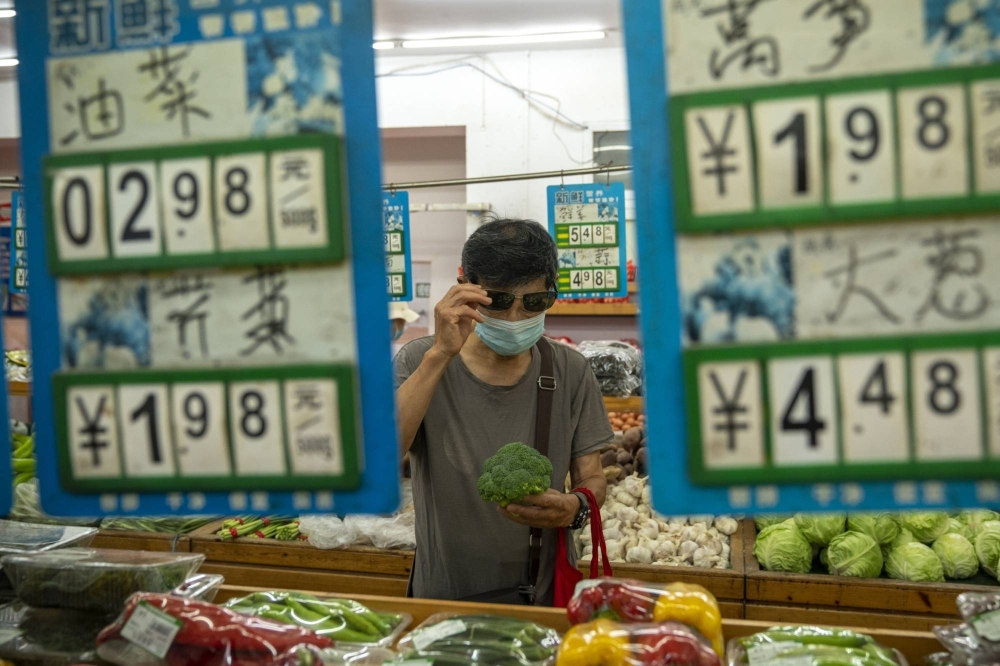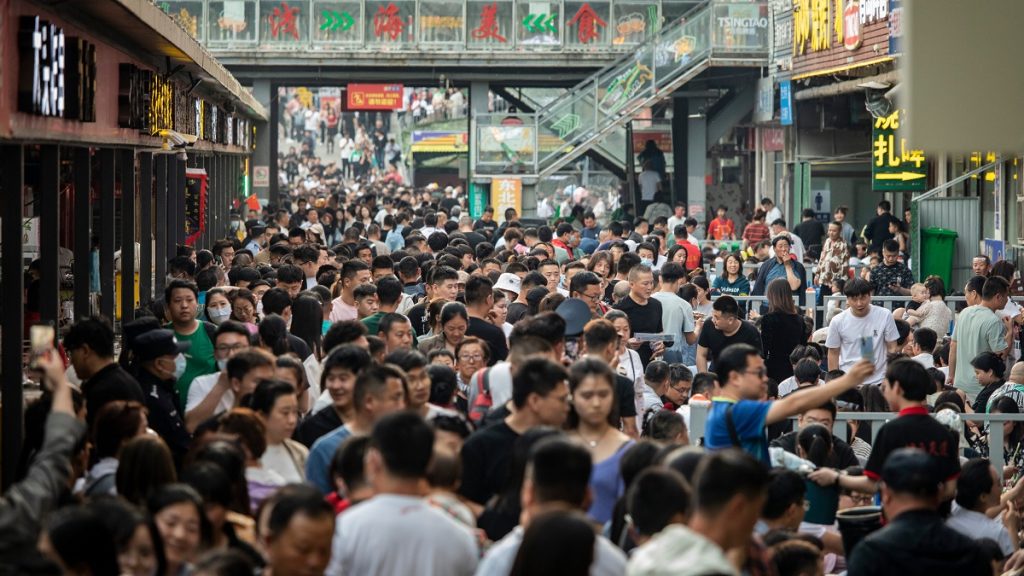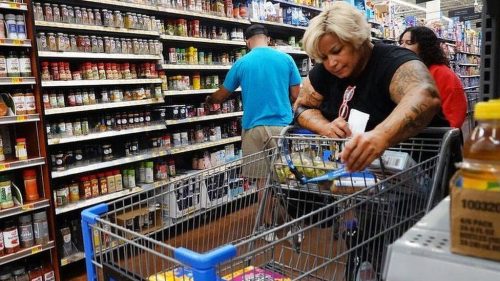Business
China’s Economy Enters Deflation as US Inflation Ticks Higher

China’s economy has entered deflation, with consumer prices falling in July for the first time in more than two years. The official consumer price index, a gauge of inflation, declined 0.3% year on year last month.
According to BBC analysts, this puts more pressure on the government to boost demand in the world’s second largest economy. This comes after weak import and export data sparked concerns about the pace of China’s post-pandemic recovery.
The country is also dealing with increasing local government debt and housing market issues. Youth unemployment is also at an all-time high, with a record 11.58 million university graduates projected to enter the Chinese labour market this year.
Analysts say falling prices make it more difficult for China to reduce its debt – and all the issues that come with it, such as slower development.
“There is no secret sauce that could be applied to lift inflation,” argues Daniel Murray of EFG Asset Management. He proposes a “simple mix of increased government spending and lower taxes, along with looser monetary policy.”
Following the termination of pandemic restrictions, consumer spending increased in the majority of affluent countries. People who had been saving money found themselves suddenly able and willing to spend, while businesses strained to meet demand.
The massive surge in demand for limited-supply products, along with increased energy costs following Russia’s invasion of Ukraine, drove up prices.
China will not benefit from deflation
However, this was not the case in China, where prices did not skyrocket as the economy escaped from the world’s most stringent coronavirus regulations. The last time consumer prices declined was in February 2021.
In reality, they’ve been on the verge of deflation for months, with prices falling earlier this year due to lacklustre demand. Factory gate prices, or the prices charged by Chinese manufacturers, have also been lowering.
“It’s concerning because it shows that demand in China is low while the rest of the world, particularly the West, is waking up,” said Alicia Garcia-Herrero, an adjunct professor at Hong Kong University of Science and Technology.
“China will not benefit from deflation.” Debt will become increasingly burdensome. “This is all bad news,” she added.
China manufactures a huge share of the commodities marketed worldwide.
An extended period of deflation in the country may have a good impact on containing growing prices in other regions of the world, particularly the United Kingdom.
However, if low-cost Chinese goods flood global markets, it could harm producers in other countries. This could reduce company investment and reduce jobs.
A period of lowering prices in China may have an impact on corporate profitability and consumer spending. This could lead to more unemployment. It might lead to a drop in demand for energy, raw materials, and food in the country – the world’s largest market – affecting worldwide exports.
China’s Property Market Crisis
China’s economy is already battling severe challenges. For one thing, it is recovering from the pandemic’s impact at a slower than predicted rate. Official numbers released on Tuesday indicated that China’s exports decreased 14.5% year on year in July, while imports declined 12.4%. The dismal trade statistics adds to fears that the country’s economic development would stall further this year.
After the near-collapse of China’s largest real estate developer, Evergrande, the country is currently coping with a continuing property market crisis. The Chinese government has been delivering the message that everything is under control, but has so far eschewed big economic stimulus measures.
Building confidence among investors and consumers, according to Eswar Prasad, a professor of trade policy and economics at Cornell University, will be critical to China’s recovery.
“The real issue is whether the government can restore confidence in the private sector so that households spend rather than save and businesses begin investing, which it hasn’t done so far,” Professor Prasad added.
“I believe we’ll need some significant stimulus measures, including tax cuts.”
US inflation ticks higher
Meanwhile, despite a substantial hike in interest rates to combat inflation, prices in the United States rose again last month.
According to the Labour Department, the rate of inflation was 3.2% in the year to July, owing to increasing housing, motor insurance, and food expenditures.
This was an increase from the previous month’s rate of 3%, which was the lowest in more than two years. Analysts predicted an uptick in the headline rate following relatively low price inflation in July. However, the US Labour Department study provided additional evidence that price hikes were slowing.
“Underlying inflation is heading in the right direction,” HSBC Asset Management’s Hussain Mehdi said, while Harvard economist Jason Furman termed the latest statistics “unambiguously good news.”
The US Federal Reserve hiked its benchmark interest rate to more than 5.25%, the highest level in 22 years, in an effort to calm the economy and relieve price pressures.
Inflation in the United States peaked at 9.1% last year, considerably beyond the Federal Reserve’s 2% target.
However, it has reduced dramatically as the impact of the Ukraine war on food and energy costs has worn off.
According to Ryan Sweet, senior US economist at Oxford Economics, the drop does not suggest that the rate-setting central bank has completed its “mission.”
“However, we expect the Fed to forego rate increases in September and November, when inflation should have slowed even further,” he said.
Core prices increased by 0.2% in July compared to June. This was the same rate as in May and June. Prices for other things, such as used vehicles and airline tickets, fell last month.
Many analysts predict housing expenses, which are significantly weighted in US inflation estimates, will begin to decline in the coming months, citing independent surveys showing a slowing in rental rate growth.
However, a recent increase in fuel prices may mean that inflation takes longer than expected to lessen its grip on the economy.
Despite being lower than a year ago, the average national price for ordinary petrol in the United States surpassed $3.80 per gallon earlier in August, up from around $3.50 a month earlier, according to the motor club group AAA.
“The recent trend is encouraging and confirms that inflation is heading in the [Fed’s] desired direction,” said Sarah House, an economist at Wells Fargo. “That said, we’re wary of getting too excited.”
China’s Property Developer Country Garden Forecasts US$7.6Bn Loss
China’s Property Developer Country Garden Forecasts US$7.6Bn Loss

































